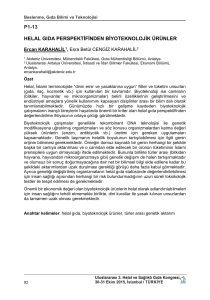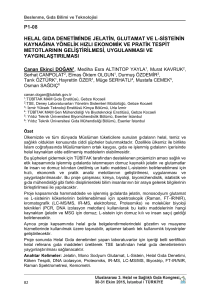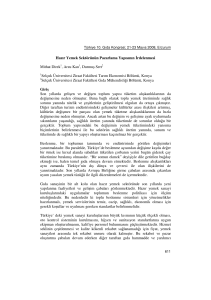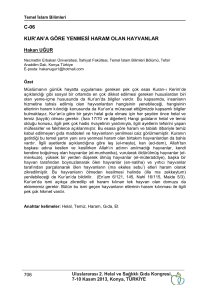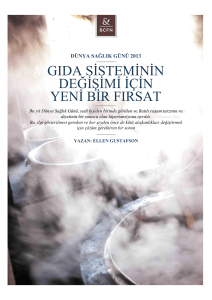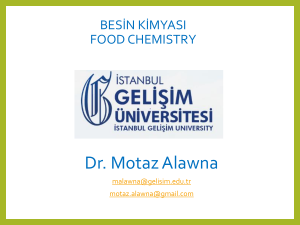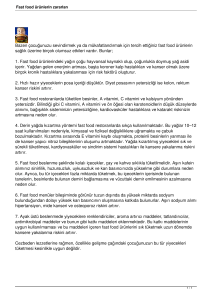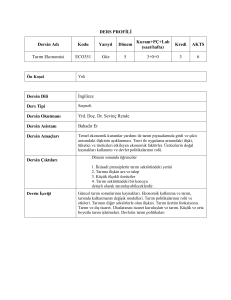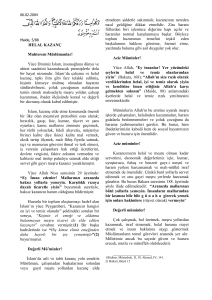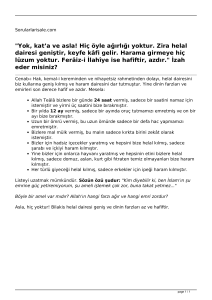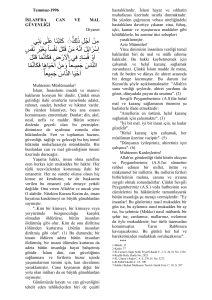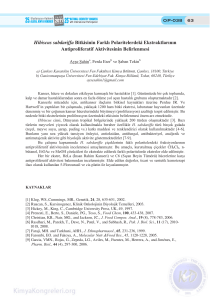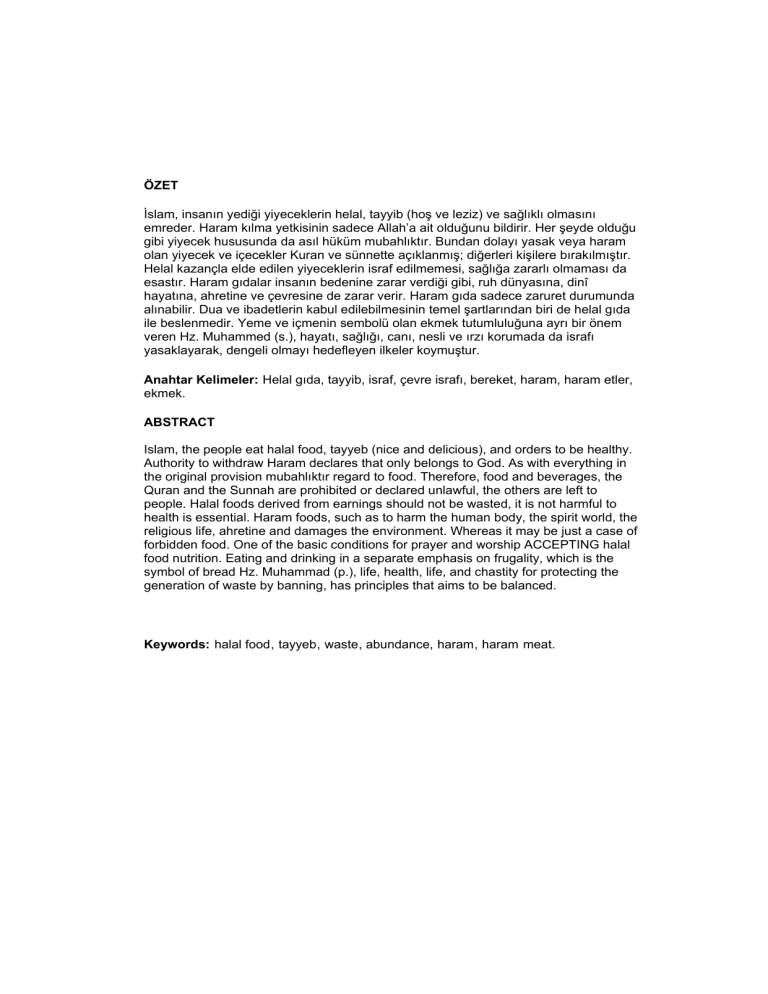
ÖZET
İslam, insanın yediği yiyeceklerin helal, tayyib (hoş ve leziz) ve sağlıklı olmasını
emreder. Haram kılma yetkisinin sadece Allah’a ait olduğunu bildirir. Her şeyde olduğu
gibi yiyecek hususunda da asıl hüküm mubahlıktır. Bundan dolayı yasak veya haram
olan yiyecek ve içecekler Kuran ve sünnette açıklanmış; diğerleri kişilere bırakılmıştır.
Helal kazançla elde edilen yiyeceklerin israf edilmemesi, sağlığa zararlı olmaması da
esastır. Haram gıdalar insanın bedenine zarar verdiği gibi, ruh dünyasına, dinî
hayatına, ahretine ve çevresine de zarar verir. Haram gıda sadece zaruret durumunda
alınabilir. Dua ve ibadetlerin kabul edilebilmesinin temel şartlarından biri de helal gıda
ile beslenmedir. Yeme ve içmenin sembolü olan ekmek tutumluluğuna ayrı bir önem
veren Hz. Muhammed (s.), hayatı, sağlığı, canı, nesli ve ırzı korumada da israfı
yasaklayarak, dengeli olmayı hedefleyen ilkeler koymuştur. Anahtar Kelimeler: Helal gıda, tayyib, israf, çevre israfı, bereket, haram, haram etler,
ekmek.
ABSTRACT Islam, the people eat halal food, tayyeb (nice and delicious), and orders to be healthy.
Authority to withdraw Haram declares that only belongs to God. As with everything in
the original provision mubahlıktır regard to food. Therefore, food and beverages, the
Quran and the Sunnah are prohibited or declared unlawful, the others are left to
people. Halal foods derived from earnings should not be wasted, it is not harmful to
health is essential. Haram foods, such as to harm the human body, the spirit world, the
religious life, ahretine and damages the environment. Whereas it may be just a case of
forbidden food. One of the basic conditions for prayer and worship ACCEPTING halal
food nutrition. Eating and drinking in a separate emphasis on frugality, which is the
symbol of bread Hz. Muhammad (p.), life, health, life, and chastity for protecting the
generation of waste by banning, has principles that aims to be balanced.
Keywords: halal food, tayyeb, waste, abundance, haram, haram meat.

